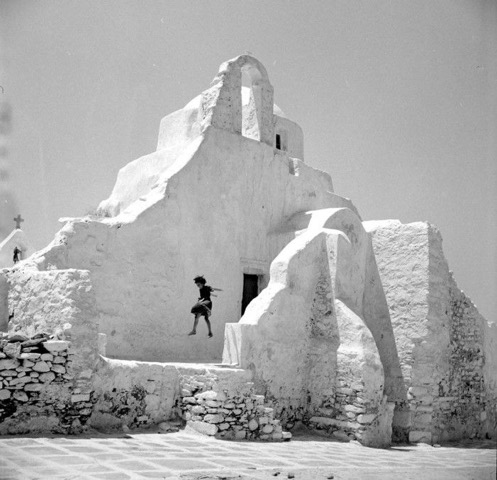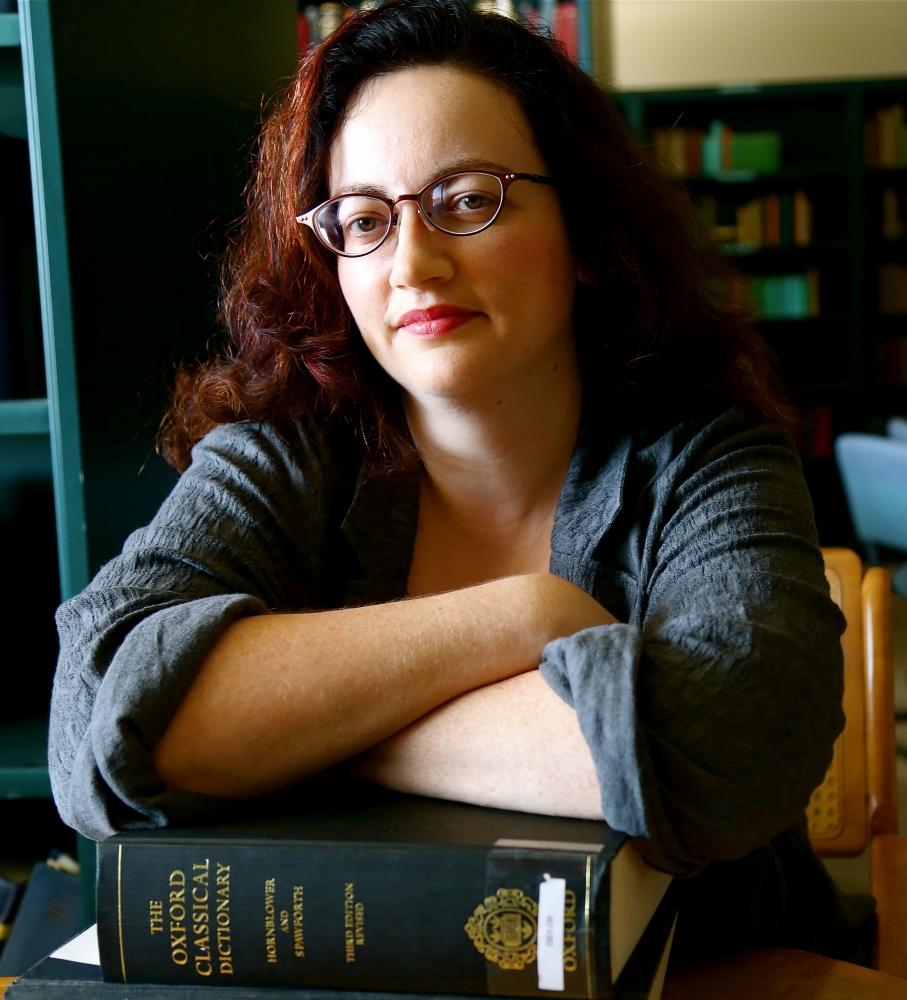
The Real Greek Life

Whether on film — “Zorba the Greek,” for example, or “My Big Fat Greek Wedding” — or in biography and literature, representations of Greek culture and history frequently run up against problems of authenticity. Are they true enough to real life?
Artemis Leontis, a scholar of modern Greek at the University of Michigan, will explore that question and others when she delivers UC Santa Barbara’s 2017 Argyroupolos Lecture at UC Santa Barbara. Her talk, “The Real Greek Life,” will take place at 5 p.m. Saturday, Oct. 21, at the Karpeles Manuscript Library, 21 W. Anapamu St. in Santa Barbara. It is free and open to the public.
“The Greeks are both an ethnic group today and a famous people of the past,” said Helen Morales, a professor of classics at UCSB. She holds the campus’s Argyropoulos Chair of Hellenic Studies. “This past is seen as an origin of many of the ideas, styles, words, cultural forms, fields of learning and stories that matter globally today — democracy, history, philosophy, drama, certain forms of architecture, mathematical theorems, geometry and mythology. Some of this is true, some of it romanticizing, but it is persistent view of ancient Greece.
Every representation of the Greeks, including ethnic Greeks of the present, is put to a relatively strenuous test of authenticity, Morales continued, because it is assumed that it must somehow align with the original idea. It must be true to its origins. “All ethnic groups worry about authenticity of representation,” she said. “Authenticity for ‘the Greeks’ is more of a problem because of their association with the origins of so many things.”
According to Morales, Leontis’s lecture will focus on how real, lived Greekness compares to fantasies of Greece. At the center is Eva Palmer Sikelianos, the American debutante and dancer who married Greek poet Angelos Sikelianos in 1907 and seemed to embody ‘the real Greek life.’
Said Leontis, “As a young adult, her female classical literacy was a sign of women’s intellectual equality. Her own recitations of Greek poetry and drama became a piece of her group effort with her lover Natalie Clifford Barney to create a utopian lesbian society inspired by their reading of Sappho.”Sikelianos’s Greek adventure took another series of unexpected turns, Leontis said, after she traveled to Greece in 1906, and these will be presented in her talk.
In 1927 and 1930, Sikelianos staged the Delphic Festivals of drama and games, significant, according to Leontis, because “they brought together two idioms for staging the Greeks, one from a women’s college production of Greek drama and specifically her efforts to produce drama in the early 20th-century lesbian circle, and another drawing on Greek national culture,” she said.



